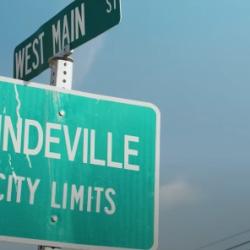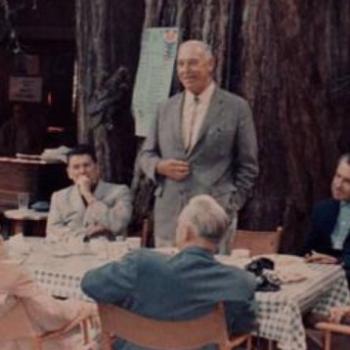President Donald Trump yesterday announced that the United States will officially recognize Jerusalem as the capital of Israel.
Let’s recognize what an odd word “recognize” is in this context. It’s a verb, but what does it entail actually doing? For a word expressing action, it involves something quite abstract. In this context, “recognize” is what linguists might call a performative verb — like inform, promise, thank, praise, request, or apologize. And we should note that performative verbs coming from Donald Trump have not usually correlated to anything meaningful in the actual world.
In terms of practical, actual action, what yesterday’s announcement will mean, specifically, is this: the United States will be moving its embassy from Tel Aviv to West Jerusalem. The embassies of every other nation will remain in Tel Aviv. (No one will be following America’s lead here because that is impossible. One cannot follow the lead of someone who is not leading.) So in one sense, this big move isn’t that big. Not a whole lot is actually going to be any different than it was before.
The announcement does, however, carry a great deal of symbolic meaning. And, as Gershom Gorenberg reminds us, when it comes to Jerusalem, symbol often carries more significance than reality:
The relationship between symbols and reality here is even more fraught than the relations between Israelis and Palestinians.
Because it’s often forgotten in the shouted international debates, let me stress: Jerusalem is an actual city of apartments, asphalt and noise, where actual people live — 865,000 of us. A bit less than two-thirds are Israelis, a bit more than one-third are Palestinians. We get stuck in traffic jams on the way to work. We worry about our kids’ futures. You can go weeks without remembering that Jerusalem is a name with more resonance than, say, Denver.
… The strangest thing about the tangible city of Jerusalem, though, is that it apparently exists only because of symbolism. It has no port, no river. It’s on the edge of a desert. The ancient water supply was poor, the natural defenses weak. The only resource it has ever had to sell is sanctity, dating back to even before the possibly mythical Solomon built a Temple here. Christianity and Islam both claimed to inherit Jerusalem’s holiness. For no logical reason, religions act as if owning Jerusalem proves their truth. Because of Jerusalem’s symbolism, the U.N. partition plan of 1947 ignored the right of self-government and self-determination of the people living there and designated it as an international city.
Jewish and Palestinian nationalism, in turn, act as the heirs of religion, and behave as if owning Jerusalem is vital to the truth of their narratives. They, too, ignore the real city’s messiness in their rhetoric.

The performative symbolism of Trump’s announcement is likely to make the real messiness of that real city much messier in the days to come, precisely because it changes the symbolic status of the United States regarding this unsettled city. Gorenberg continues:
Consistent U.S. policy until yesterday was that American recognition of the city as a capital would await an agreement between Israelis and Palestinians on its final status. This also had symbolic value. It said the current situation isn’t final. It served as a promissory note for serious negotiations, with the United States as honest broker. It underwrote a sliver of hope for Palestinians in the city. The U.S. position allowed the Palestinian Authority and Muslim countries such as Turkey not to treat the Israeli stance as final. It reminded Israelis not to completely believe their own declarations.
Trump’s statement reversed that prior policy, thus reversing all the implications Gorenberg cites there: It undermines the push for serious negotiations, suggests that the United States cannot be an honest broker, reduces the sliver of hope for Palestinians in the city, and encourages the Israeli government — recklessly — “to completely believe their own declarations.” None of that is helpful in the long run or in the immediate future for any of the city’s actual residents — whether they’re Israeli citizens or Palestinian sub-citizens.
Gorenberg worries that this “increases the chance of an eruption” of violence in Jerusalem and throughout the occupied West Bank. And it does. People with no legal or political status have just been informed that they have even less legal or political recourse than they had a week ago. And when you tell hundreds of thousands of people that they have no legal or political options for protecting their families and their property, the results are obvious and predictable. Deny them any other options, and they will pursue what seems to be the only path that remains. Most of us would likely do the same. (Yes, I know we all like to fantasize that in such a situation we would transform ourselves into some combination of Gene Sharp, Gandhi, and Jeremy Irons in The Mission, but sainthood is rare and mass-sainthood seems a bit much to expect.)
The expected “eruption of violence” (note the absence of both subject and object in that construction) arrived yesterday as scheduled. And, as Barbara Plett Usher writes for the BBC, Trump’s announcement is also producing other ugly results in the diplomatic arena — shaping up as what she calls a “peace-process own goal.”
So why did this happen? Well, in large measure, as Plett Usher says, because “It’s a Christian thing.” Or, more accurately, it’s a white-evangelicals-who-claim-they-own-the-word-Christian thing (Pope Francis, for example, swiftly condemned and criticized Trump’s move):
The face of Mike Pence beaming over Mr Trump’s shoulder during the announcement said it all.
The vice-president was an influential voice in convincing Mr Trump to follow through on his campaign promise, and this illustrates the political power of hardline Christian evangelicals who fervently support Israel.
That’s not quite right. “Hardline [white] Christian evangelicals” don’t really “support Israel” as much as they support a bunch of their own ideas about Israel. They have a check list of stuff they think needs to happen before Jesus comes back to get them before they die, and a lot of that check list involves Israel. Some of the items on that check list line up with things on Bibi Netanyahu’s personal wish list, but many of them would not be, in any way, good news for Israel or for any of the people living there.
Like, for example, Armageddon.
There’s a lot more to talk about there, so we’ll come back to that shortly, but let’s just wrap up here by noting that white evangelical Rapture enthusiasts and Left Behind-readers were not the only constituency Trump was appealing to with his announcement. He was also appealing to Christian nationalists, which is to say, to white nationalists — whether of the Bartonite or Bannonite variety, or of hybrids of both (like, for example, Roy Moore).
The David Barton strain of nationalists love to talk about America as a “Judeo-Christian” nation, but they’ll also be spending most of this month snarling an aggressively hostile “Merry Christmas” back at anyone with the gall to wish them “Happy Holidays.” They just barely, reluctantly, tolerate the presence of American Jews, but insist that they — like everyone else who is not a white Protestant — must accept the dominance and hegemony of white Christians in this white Christian nation. Tolerance is, for them, “the indulgence of one class of people [white evangelicals] that any other enjoy the exercise of their inherent natural rights.” That hollow “Judeo-” prefix is just such an indulgence — a conditional, impermanent, favor that can be withdrawn at any time.
The Bannonite strain of white nationalism is more explicitly anti-Semitic, as exemplified by those whom Trump described as “very fine people” as they marched through Charlottesville chanting “Jews will not replace us.”
So why do anti-Semitic nationalists of either variety support a move portrayed as “support for Israel”? For the same reason that many white American racists in the 19th century expressed support for Liberia. They like the idea a Jewish state over there, on the other side of the world, because that’s where they think Jews belong. Not here. They “support Israel,” in part, because they see it as a way of advancing their goal of a “Christian America.” (And “Christian America,” here, is a piously polite euphemism for, to put it bluntly, ethnic cleansing.)
















